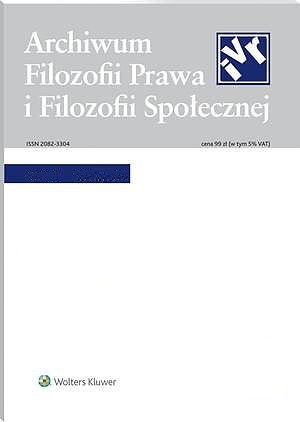Why Moral Norms Cannot be Reduced to Facts: On a Trilemma in Derivations of Moral “Ought” from “Is”
Why Moral Norms Cannot be Reduced to Facts: On a Trilemma in Derivations of Moral “Ought” from “Is”
Author(s): Wojciech ZałuskiSubject(s): Law, Constitution, Jurisprudence, Ethics / Practical Philosophy, Philosophy of Law, Philosophy of Law
Published by: Stowarzyszenie Filozofii Prawa i Filozofii Społecznej – Sekcja Polska IVR
Keywords: ought-statements; is-statements; logical derivation; ethical justification; Searle; Anscombe; naturalistic ethics; divine ethics
Summary/Abstract: The paper aims at formulating a certain trilemma that applies to justifying moral norms. The trilemma can be succinctly stated as follows: any attempt to derive a “moral-ought-statement” from an “is-statement” with a justificatory goal (i.e. to justify the “moral-ought-statement”), even if it were successful in its “derivation” part (i.e. logically correct), would be unsuccessful in its “justificatory” part for one of the following three reasons: (1) it would consider each human action of which a factual statement can be made as morally obligatory, thus “justifying” a large number of implausible moral norms; or (2) it would presuppose a moral norm not derivable from facts; or (3) it would not explain why the distinction – made based on extra-moral criteria – between those factual statements about human actions from which moral norms can be derived and those from which they cannot be derived should count as morally relevant. The trilemma is illustrated in the paper by an analysis of Searle’s well-known attempt at deriving “ought” from “is”. Some further implications of the trilemma regarding the proper way of justifying moral norms are also examined.
Journal: Archiwum Filozofii Prawa i Filozofii Społecznej
- Issue Year: 20/2019
- Issue No: 2
- Page Range: 63-74
- Page Count: 12
- Language: English

